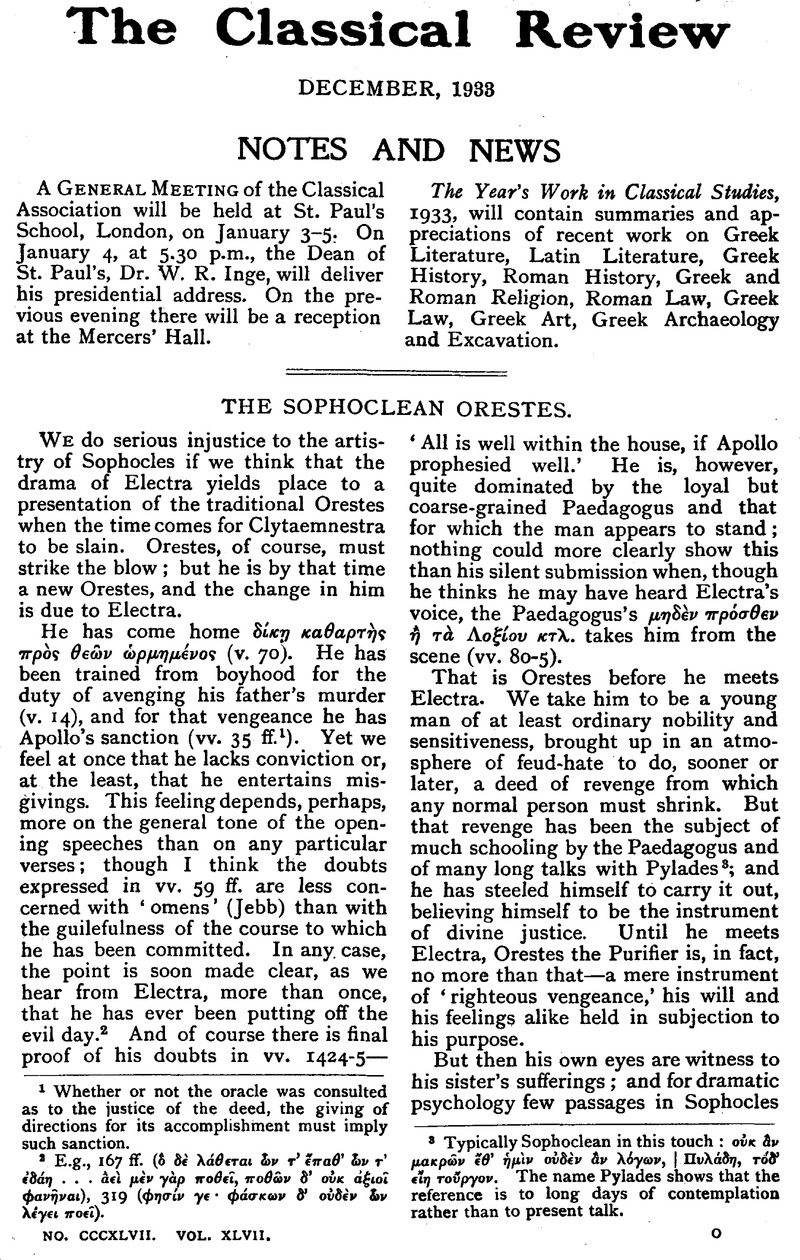No CrossRef data available.
Article contents
The Sophoclean Orestes
Published online by Cambridge University Press: 27 October 2009
Abstract

- Type
- Review Article
- Information
- Copyright
- Copyright © The Classical Association 1933
References
page 209 note 1 Whether or not the oracle was consulted as to the justice of the deed, the giving of directions for its accomplishment must imply such sanction.
page 209 note 2 E.g., 167 ff. ![]()
page 209 note 3 Typically Sophoclean in this touch: ![]() . The name Pylades shows that the reference is to long days of contemplation rather than to present talk.
. The name Pylades shows that the reference is to long days of contemplation rather than to present talk.
page 210 note 1 He is intent upon the business in hand, yet shows just enough genuine feeling for her: 1271−2, 1279. The dramatic effect achieved through his coldness is much greater than could have been achieved by attempting to match Electra's highly-wrought condition with excited emotion on his part. I imagine an actor would find the part to his liking.
page 210 note 2 The nobility of Electra is fully attested in the second strophe and antistrophe (vv. 1082 ff.) of the chorus which follows the second scene with Chrysothemis. She is dyadij and is upholding the Great Laws.




